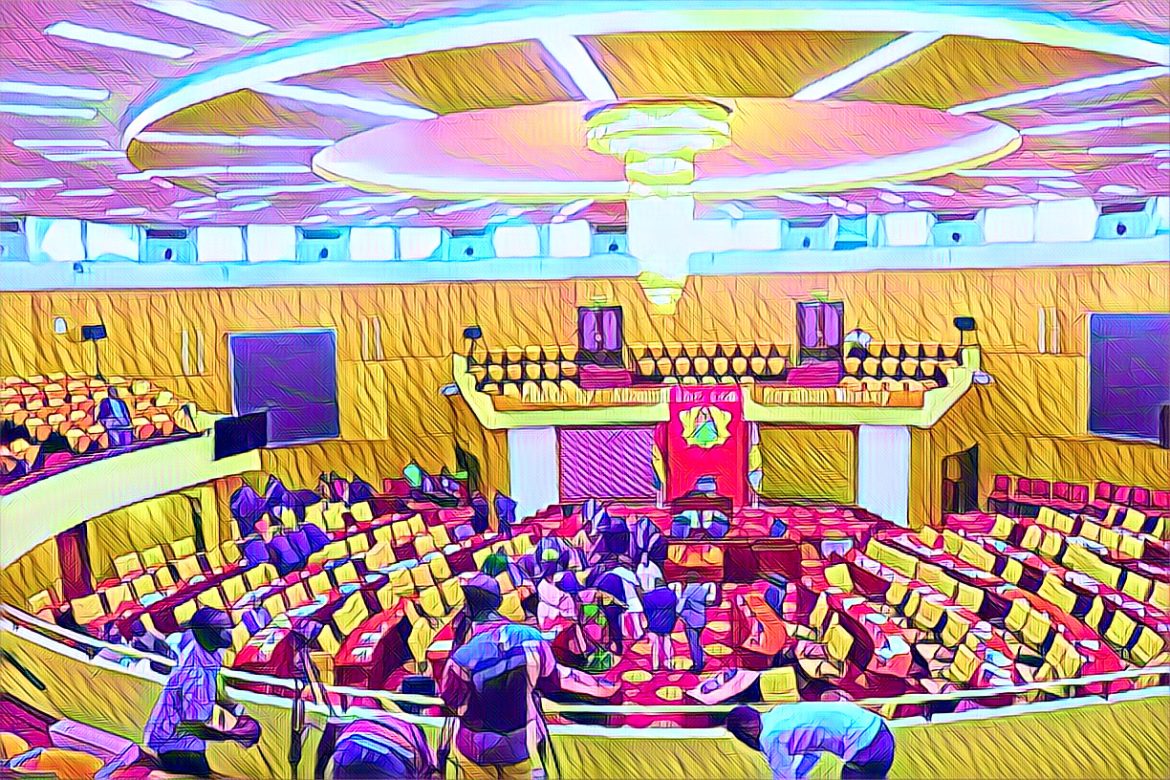The ministerial nominations proposed by President Nana Akufo-Addo have been officially approved by the Ghanaian Parliament. The final debate took place on Friday, May 17, during which the Minority walked away. With the approval, the President’s first extensive ministerial reshuffle since 2017 is progressing greatly.
Dr. Cassiel Ato Forson, the Minority’s leader, left the chamber as a result of the session’s fierce discussions and unsettling atmosphere. Citing the present economic crisis, rising food hunger, ongoing power outages (“dumsor”), and what he called imprudent government borrowing, Dr. Forson expressed strong opposition to the appointments. During the meeting, he contended that “piling up ministers and deputies does not signal to the Ghanaians that the President recognizes the magnitude of the mess caused.”
Following the walkout, the Speaker of Parliament, Alban Bagbin, momentarily suspended the sitting to allow tempers to cool down. However, upon resumption, only members of the Majority were present. The approval was then pushed through via a voice vote managed by the Speaker. The reshuffle includes several key appointments: Dr. Bernard Okoe Boye has been designated as the Minister for Health, Ophelia Mensah Hayford will take over the Ministry of Environment, Science, Technology, and Innovation, and Ms. Fatimatu Abubakar is the new Minister for Information. Other notable appointments include Dakoa Newman as the Minister for Gender, Children, and Social Protection, and Martin Adjei-Mensah Korsah as the Minister for Local Government, Decentralisation and Rural Development.
Additional portfolios were allocated as follows: Lydia Seyram Alhassan will head the Ministry of Sanitation and Water Resources; Tourism, Arts, and Culture will be led by Andrew Egyapa Mercer; Titus Glover and Daniel Machator have been appointed as regional ministers for the Greater Accra and Oti Regions, respectively.
The deputy ministerial appointments include Sylvester Tetteh for Information, Vincent Ekow Assafuah for Local Government, Decentralisation and Rural Development, and Charles Acheampong for Communications and Digitalisation. The Health Ministry will see Adelaide Ntim and Alexander Akwasi Acquah as deputies, with Dr. Prince Hamidu Armah serving as Deputy Minister for Works and Housing. This list continues with appointments in Lands and Natural Resources, Fisheries and Aquaculture Development, Energy, Education, Employment and Labour Relations, and Gender, Children, and Social Protection, aiming to boost the government’s capabilities across various sectors.
Following a petition by Majority Leader Alexander Afenyo-Markin to resolve unfinished business, as required by Article 112(3) and Order 53 of the Standing Orders of Parliament, the confirmation session was required by an emergency summon of Parliament. A recent legal challenge to the nominating procedure also had an impact on the recall’s outcome.
Previously, on May 20, MP Rockson-Nelson Dafeamekpor filed a temporary order seeking to halt the proceedings until constitutional provisions were met, which resulted in the suspension of consideration of the nominations. The process for today’s approvals was soon smoothed when this legal action was dropped.
With a reformed cabinet intended to tackle a range of national issues, President Akufo-Addo’s administration views the acceptance of these ministerial nominations as an extremely important turning point. In the face of continued regional and national challenges, the new ministers and their deputies are expected to forward the government’s agenda, with a particular emphasis on social welfare reforms, infrastructure development, and economic recovery.





1 comment
**mitolyn**
Mitolyn is a carefully developed, plant-based formula created to help support metabolic efficiency and encourage healthy, lasting weight management.